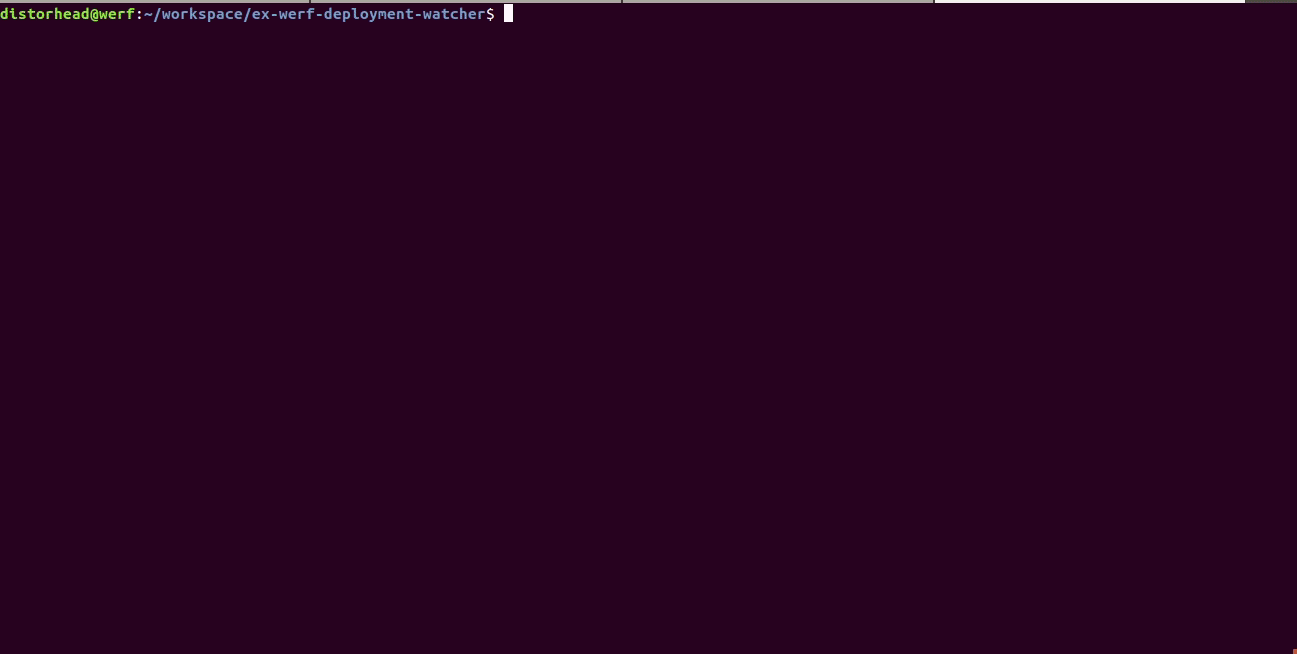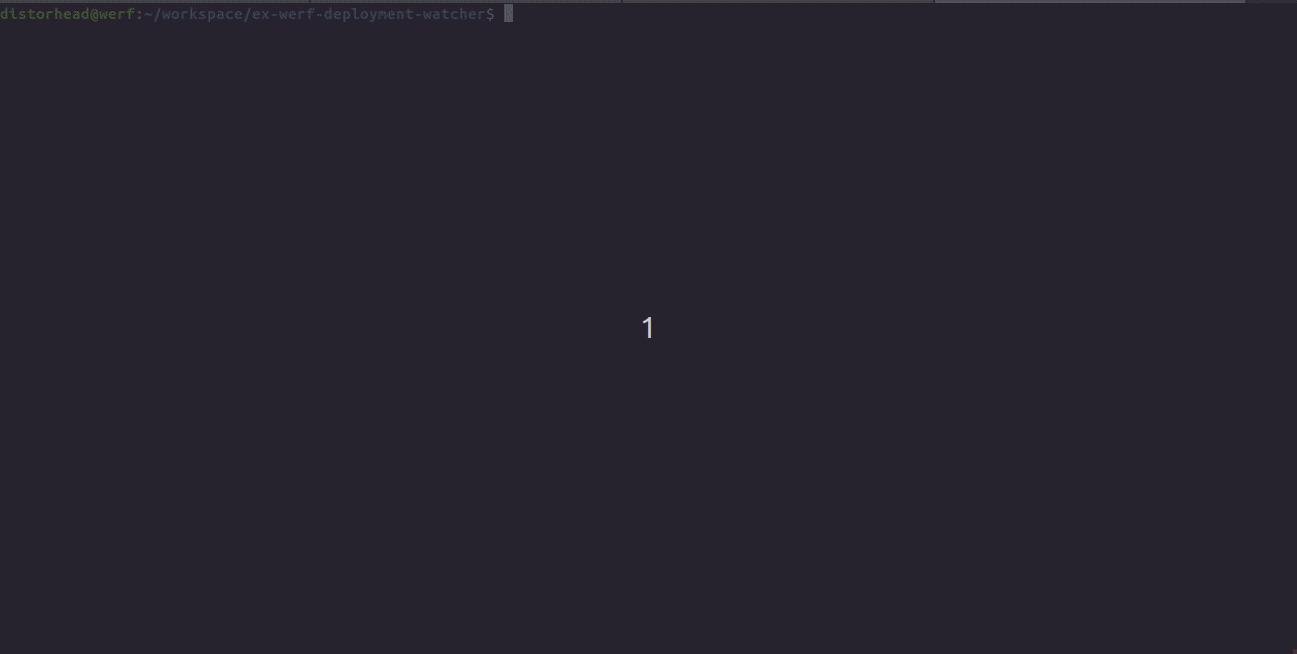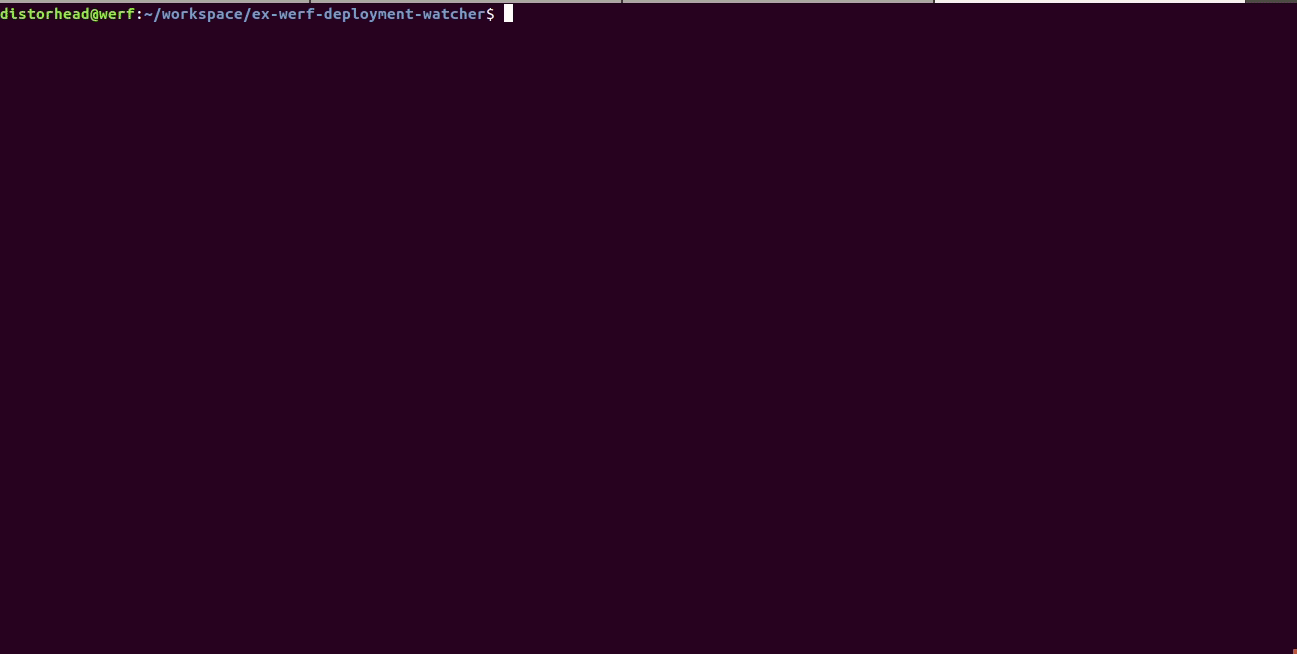This article contains description of annotations which control werf resource operations and tracking of resources during deploy process. Annotations should be configured in the chart templates.
werf.io/weight— defines the weight of the resource, which will affect the order in which the resources are deployed.<any-name>.external-dependency.werf.io/resource— wait for specified external dependency to be up and running, and only then proceed to deploy the annotated resource.<any-name>.external-dependency.werf.io/namespace— specify the namespace for the external dependency.werf.io/replicas-on-creation— defines number of replicas that should be set only when creating resource initially (useful for HPA).werf.io/track-termination-mode— defines a condition when werf should stop tracking of the resource.werf.io/fail-mode— defines how werf will handle a resource failure condition which occurred after failures threshold has been reached for the resource during deploy process.werf.io/failures-allowed-per-replica— defines a threshold of failures after which resource will be considered as failed and werf will handle this situation using fail mode.werf.io/ignore-readiness-probe-fails-for-CONTAINER_NAME— override automatically calculated ignore period during which readiness probe failures will not mark resource as failed.werf.io/no-activity-timeout— change inactivity period after which the resource will be marked as failed.werf.io/log-regex— specifies a template for werf to show only those log lines of the resource that fit the specified regex template.werf.io/log-regex-for-CONTAINER_NAME— specifies a template for werf to show only those log lines of the resource container that fit the specified regex template.werf.io/skip-logs— completely disable logs printing for the resource.werf.io/skip-logs-for-containers— disable logs of specified containers of the resource.werf.io/show-logs-only-for-containers— enable logging only for specified containers of the resource.werf.io/show-service-messages— enable additional logging of Kubernetes related service messages for resource.
More info about chart templates and other stuff is available in the helm chapter.
Resource weight
werf.io/weight: "NUM"
Example:
werf.io/weight: "10"
werf.io/weight: "-10"
- Can be a positive number, a negative number, or a zero.
- Value is passed as a string. If omitted, the
weightis set to 0 by default. - Works for non-Hook resources only. For Hooks, use
helm.sh/hook-weight, which works almost the same.
This parameter sets the weight of the resources, defining the order in which they are deployed. First, werf groups resources according to their weight and then sequentially deploys them, starting with the group with the lowest weight. In this case, werf will not proceed to deploy the next batch of resources until the previous group has been successfully deployed.
More info: deployment order
External dependency resource
<any-name>.external-dependency.werf.io/resource: type[.version.group]/name
Example:
secret.external-dependency.werf.io/resource: secret/config
someapp.external-dependency.werf.io/resource: deployments.v1.apps/app
Sets the external dependency for the resource. The annotated resource won’t be deployed until the external dependency has been created and ready.
More info: deployment order
External dependency namespace
<any-name>.external-dependency.werf.io/namespace: name
Sets the namespace for the external dependency specified by the external dependency resource annotation. The <any-name> prefix must be the same as in the annotation of the external dependency resource.
More info: deployment order
Replicas on creation
When HPA is active usage of default spec.replicas leads to harmful and tricky behaviour, because each time werf chart is being converged through CI/CD process, resource replicas will be reset to the static spec.replicas value in the chart templates, even if this value will was already changed in runtime by the HPA.
One recommended solution is to completely remove spec.replicas from the templates. But if you need to set replicas only when initially creating resource then you need "werf.io/replicas-on-creation" annotation.
"werf.io/replicas-on-creation": "NUM"
Defines a number of replicas which will be set for the resource on initial creation.
NOTE "NUM" should be specified as string, because annotations does not support anything but strings, any type other than string will be ignored.
Track termination mode
"werf.io/track-termination-mode": WaitUntilResourceReady|NonBlocking
Defines a condition when werf should stop tracking of the resource:
WaitUntilResourceReady(default) — the entire deployment process would monitor and wait for the readiness of the resource having this annotation. Since this mode is enabled by default, the deployment process would wait for all resources to be ready.NonBlocking— the resource is tracked only if there are other resources that are not yet ready.

TIP Use "werf.io/track-termination-mode": NonBlocking annotation when you need to describe a StatefulSet object with the OnDelete manual update strategy, and you don’t want to block the entire deploy process while waiting for the StatefulSet update.
TIP Use "werf.io/track-termination-mode": NonBlocking and "werf.io/fail-mode": IgnoreAndContinueDeployProcess when you need to define a Job in the release that runs in the background and does not affect the deploy process.
Fail mode
"werf.io/fail-mode": FailWholeDeployProcessImmediately|HopeUntilEndOfDeployProcess|IgnoreAndContinueDeployProcess
Defines how werf will handle a resource failure condition which occurred after failures threshold has been reached for the resource during deploy process:
FailWholeDeployProcessImmediately(default) — the entire deploy process will fail with an error if an error occurs for some resource.HopeUntilEndOfDeployProcess— when an error occurred for the resource, set this resource into the “hope” mode, and continue tracking other resources. If all remained resources are ready or in the “hope” mode, transit the resource back to “normal” and fail the whole deploy process if an error for this resource occurs once again.IgnoreAndContinueDeployProcess— resource errors do not affect the deployment process.
Failures allowed per replica
"werf.io/failures-allowed-per-replica": "NUMBER"
By default, one error per replica is allowed before considering the whole deployment process unsuccessful. This setting defines a threshold of failures after which resource will be considered as failed and werf will handle this situation using fail mode.
Ignore readiness probe failures for container
"werf.io/ignore-readiness-probe-fails-for-CONTAINER_NAME": "TIME"
This annotation allows to override the result of automatically calculated period during which readiness probe failures
will be ignored and won’t fail the rollout. After this period the first failed readiness probe fails the rollout. By
default, the ignore period is automatically calculated based on readiness probe configuration. Note that
if failureThreshold: 1 specified in the probe configuration then the first received failed probe will fail the
rollout, regardless of ignore period.
The value format is specified here.
Example:
"werf.io/ignore-readiness-probe-fails-for-backend": "20s"
No activity timeout
werf.io/no-activity-timeout: "TIME"
Default: 4m
Example:
werf.io/no-activity-timeout: "8m30s"
werf.io/no-activity-timeout: "90s"
If no new events or resource updates received in TIME then the resource will be marked as failed.
The value format is specified here.
Log regex
"werf.io/log-regex": RE2_REGEX
Defines a Re2 regex template that applies to all logs of all containers of all Pods owned by a resource with this annotation. werf would show only those log lines that fit the specified regex template. By default, werf shows all log lines.
Log regex for container
"werf.io/log-regex-for-CONTAINER_NAME": RE2_REGEX
Defines a Re2 regex template that applies to logs of CONTAINER_NAME containers in all Pods owned by a resource with this annotation. werf would show only those log lines that fit the specified regex template. By default, werf shows all log lines.
Skip logs
"werf.io/skip-logs": "true"|"false"
Set to "true" to turn off printing logs of all containers of all Pods owned by a resource with this annotation. This annotation is disabled by default.

Skip logs for containers
"werf.io/skip-logs-for-containers": CONTAINER_NAME1,CONTAINER_NAME2,CONTAINER_NAME3...
The comma-separated list of containers in all Pods owned by a resource with this annotation. werf would turn off log output for those containers.
Show logs only for containers
"werf.io/show-logs-only-for-containers": CONTAINER_NAME1,CONTAINER_NAME2,CONTAINER_NAME3...
The comma-separated list of containers in all Pods owned by a resource with this annotation. werf would show logs for these containers. Logs of containers that are not included in this list will not be printed. By default, werf displays logs of all containers of all Pods of a resource.
Show service messages
"werf.io/show-service-messages": "true"|"false"
Set to "true" to enable additional real-time debugging info (including Kubernetes events) for a resource during tracking. By default, werf would show these service messages only if the resource has failed the entire deploy process.



